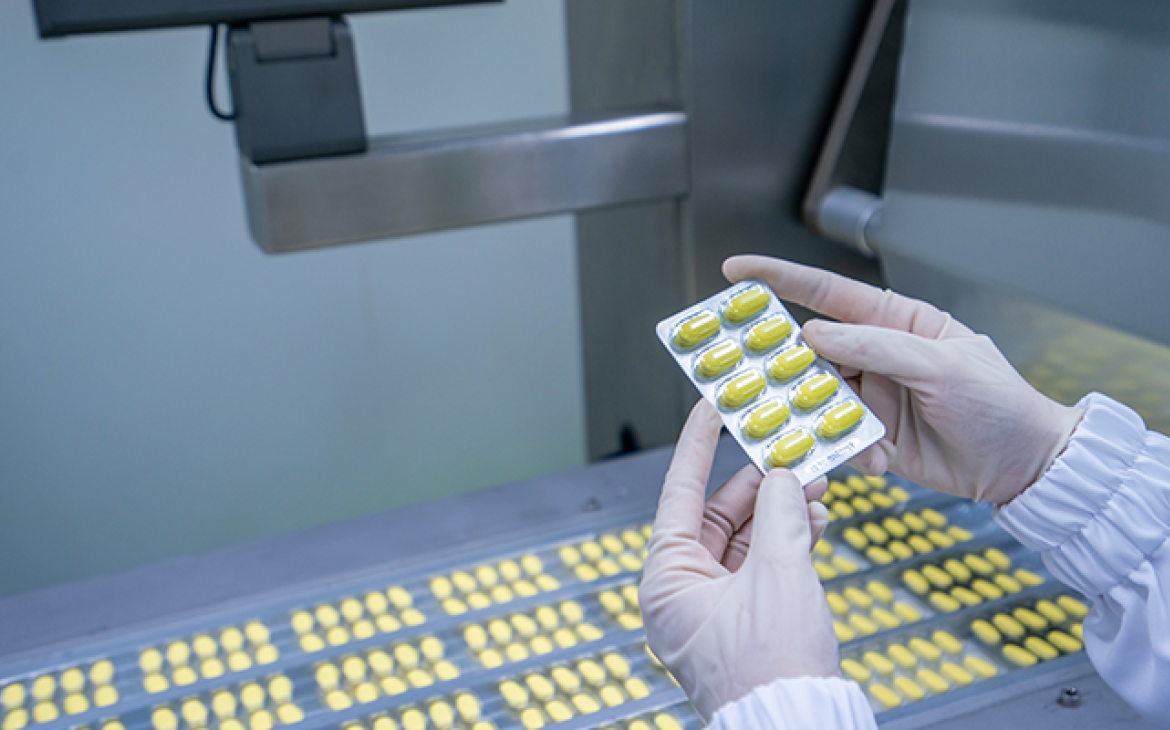
Another public health crisis looms in the wake of the COVID-19 pandemic. Antimicrobial resistance (AMR) has gained increasing attention over the past several years; earlier this year, the World Health Organization (WHO) recognized AMR as 1 of 13 urgent challenges for the decade. By 2050, approximately 10 million deaths per year may result from ineffective antimicrobials, and the global economic impact between now and 2050 is estimated to cost US$100 trillion. Yet, the pandemic has diverted finite resources, distracted policymakers, diminished political will, and delayed new legislation. Concrete actions are needed urgently to prevent AMR from becoming the next global public health crisis.
The Case for Addressing AMR in the Time of COVID-19
AMR occurs when pathogens—such as bacteria, parasites, or viruses that cause infections like pneumonia, malaria, or the seasonal flu—no longer respond to treatments such as antibiotics, antimalarials, and antivirals. These medicines are essential tools of healthcare systems treating, and in some cases preventing, life-threatening diseases. View an interactive visualization of how AMR develops.
Beyond diverting attention from efforts to address AMR, the coronavirus pandemic may also be exacerbating this crisis. Data from five countries suggest that about 7% of COVID-19 diagnoses are associated with bacterial infections, but 72% of COVID-19 patients received antibiotics without a clinical indication. Misuse of antibiotics to treat COVID-19—a viral disease—could lead to new resistance mutations.
Additionally, the COVID-19 pandemic has led to a proliferation of substandard and falsified antimicrobial medicines. An often underrecognized driver of AMR, substandard medicines lead to treatment failure and the emergence or spread of antimicrobial resistance. Meanwhile, regulatory systems in many countries are overstretched already. As they evaluate new therapies and preventatives for the coronavirus, regulators have diminished capacity to detect poor-quality medicines—including antimicrobials—and prevent them from reaching patients within their borders. At the same time, the pandemic caused global supply chain disruptions while unexpected demand for certain medical products spiked, leading to shortages of essential medicines and critical supplies like personal protective equipment. Taken together, these conditions fuel the market for substandard and falsified products.
Poor-Quality Medicines as a Driver of AMR
Poor-quality medicines proliferate around the world in the absence of strong regulatory systems. However, even where strong regulatory systems exist, AMR knows no boundaries. As people travel around the world, resistance can spread across borders and countries.
Ongoing research through USP’s Quality Institute—a research collaboration with leading academic partners around the world—is helping to explain the link between poor-quality antimicrobials and AMR. In some cases, resistance not only emerges when a bug is exposed to substandard antimicrobials, but also spreads within a product class—a troubling finding that suggests even new antibiotics may not always treat infections effectively. Other research from the Quality Institute has shown that resistant pathogens can outcompete wild type microorganisms—in other words, the bug that does not respond to treatment is stronger than the bug that would be eliminated by the drug. While it was laboratory research that demonstrated this link, it echoes the emergence and spread of malaria-causing parasites documented in Southeast Asia. These resistance patterns could spread globally, especially in Africa where malaria is endemic.
What Actions Can We Take Now?
Many actions underway to address the pandemic—particularly those addressing medicine quality—are the same ones that can combat AMR. Consequently, USP calls upon global stakeholders to take urgent action to focus on ensuring medicines quality through:
- Strengthening regulatory systems: Building the capabilities of regulators (and local manufacturers), in part by introducing innovative surveillance technologies, helps to mitigate substandard and falsified medicines, including antimicrobials, which in turn helps combat AMR. Public quality standards, which include test specifications supported by acceptable procedures and reference materials, are key tools for regulators’ surveillance programs. The Promoting the Quality of Medicines Plus (PQM+) program, funded by the U.S. Agency for International Development (USAID) and implemented by USP, supports country efforts to monitor substandard and falsified medicines and helps strengthen AMR surveillance efforts.
- Securing the supply chain: Improving the global medicines supply chain helps ensure the quality of products and practices everywhere, including in low- and middle-income countries, thereby helping to combat AMR. Increasing transparency through information-sharing, along with regulatory reliance and recognition agreements, are ways to help facilitate stronger and more resilient supply chains and steward resources, which is especially needed in the midst of a public health crisis.
- Supporting global and domestic procurement practices: Global and domestic procurement practices can help ensure the availability of quality medical products, including quality antimicrobials that can help prevent or slow the spread of AMR. International donors, including USAID, the Gates Foundation, WHO, and several other United Nations agencies have developed a joint set of principles for countries, multilateral organizations, and third-party procurers guiding quality assurance in the purchase of essential medicines—including antibiotics and other antimicrobials. USP co-hosted a roundtable discussion at the margins of the 72nd World Health Assembly in 2019, which led to a Call to Action to support more effective procurement policies and practices and to help ensure the right of everyone to receive quality-assured medical products.
Beyond these actions, USP supports and encourages existing and new stewardship initiatives for appropriate antibiotic use in hospital and outpatient settings. New antimicrobial stewardship guidelines should align with guidance from organizations including WHO, the U.S. Centers for Disease Control and Prevention (CDC), and the Infectious Disease Society of America (IDSA). Furthermore, USP supports initiatives that encourage development of new antimicrobial drugs in the pipeline. Assuring the quality of medicines is essential for new drugs to work as effectively and for as long as possible. To learn more, read USP’s global public policy position on addressing AMR.
Averting the Crisis at Our Doorstep
We must address challenges in medicines quality that can contribute to AMR, even in a new world struggling to balance the ongoing COVID-19 crisis with prior and emerging health threats. The pandemic has demonstrated that political will and global cooperation are necessary to address a public health crisis. Recent and historical examples also show that globally coordinated efforts are possible—whether to develop and distribute therapies for HIV or advocate for childhood immunization through awareness campaigns.
Public health experts warned us for many years about the possibility of a global pandemic, yet in large part, we ignored the signals and thus were unprepared. We don’t have to repeat the same mistakes with AMR; it is a public health crisis at our doorstep, and we must do all we can to address it now.


